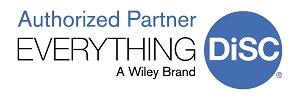If you’re interested in how a DiSC® personality workshop can stimulate group activity and may even propel your team to greatness, here are some interesting facts for you.

The folks who make DiSC® workshops like ours possible are always looking for ways to make their model better. To that end, the personality profiles used in the DiSC® assessment are subject to continuous research. These research findings are published in a handy volume by Wiley, in a volume titled Everything DiSC® Manual.
But who likes reading manuals? Lucky for you, we’ve pulled seven of the most fascinating facts from the latest manual, assembled here for you to enjoy. Here you are, the 7 most choice tidbits from research that supports our DiSC® personality workshops.
7 Facts You Should Know About DiSC® Research and Group Activity
1. A majority of people who take the DiSC® assessment agree with the results.
Most participants in DiSC® assessments reported that the results were either good or excellent, 90% of the time. If you know anything about psychology, however, you’ll know about the Forer effect, which shows that people tend to agree wholeheartedly with the results of psychological tests.
That’s why this next fact is important:
2. People observing a DiSC® assessment also agree with the results.
People who observed leadership behavior tended to agree with the results of DiSC® personality assessments given to others.
3. DiSC® styles are not exclusive of one another.
In a group activity such as our DiSC® personality training workshop, people often love to come away with a clean, simple and handy one-word “definition” of their personalities. While that would make life easier for all of us, it’s simply not the case that people only exhibit the patterns of personality that fit their styles.
The research shows that people will show priorities and behavior from DiSC® quadrants outside the one that matches their style. So for example, even if you are an “S” style, it’s still possible to demonstrate “D” preferences in your style.
4. DiSC® is simply a group activity, NOT a career-determining test.
Research revealed that there is only a very modest correlation between DiSC® styles and occupation.
5. DiSC® results are stable.
If you take the DiSC® assessment today, then take it again next year, results should be very similar. Research suggests these results are stable, no matter how many times you do the assessment.
6. Education has almost no bearing on DiSC® results.
No matter what your level of education, your DiSC® profile is your DiSC® profile and won’t change because of a degree. Research showed the largest impact education had was on the Di scale, where it accounted for a .7% variance.
7. Other demographics have almost no bearing on DiSC® style, either.
Neither gender, ethnicity, nor heritage are predictors of DiSC® personality styles, according to the data presented in the Manual. Of these factors, only gender had any impact, and even that was very small.
If you’d like your next group activity to include some DiSC® personality styles training, we have a certified DiSC® instructor here at Magnovo, ready to take your team to the next level of communication. Call us!
